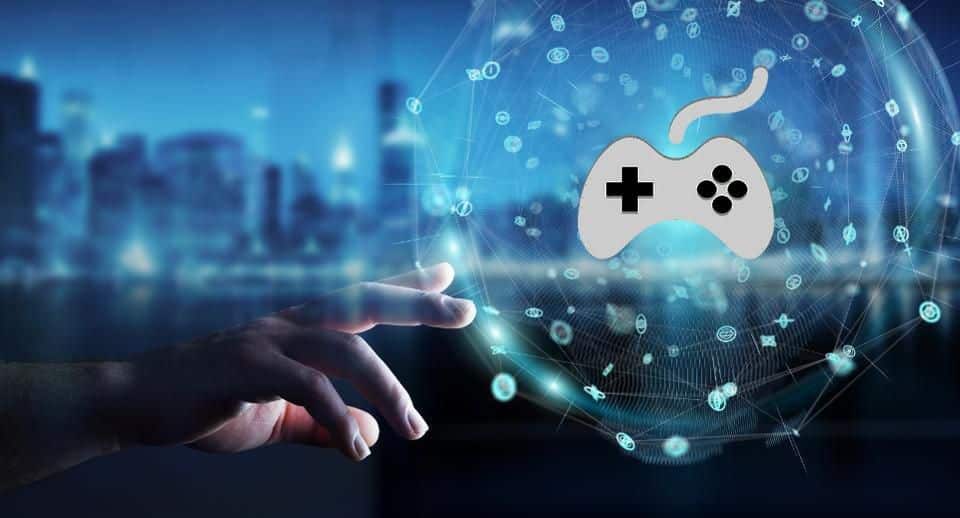Blockchain in Gaming: A Game-Changer for the Industry
The gaming industry, already experiencing a boom due to the COVID-19 pandemic, is on the cusp of a revolutionary shift with the adoption of blockchain technology. This innovation has the potential to disrupt traditional investment structures in gaming, unlock new revenue streams, and provide unparalleled benefits to 2.5 billion gamers worldwide.
The Role of Blockchain in Gaming’s Transformation
Blockchain technology introduces asset tokenization, creating new opportunities for gamers, developers, and investors alike. By tokenizing assets, teams, and in-game items, the gaming industry can open itself to a modern wave of investment and player engagement.
1. Esports and Tokenized Teams
The esports sector is at the forefront of blockchain adoption, with tokenization already transforming the way teams and players interact with their communities.
Tokenized Fan Engagement:
In July 2019, the blockchain-based voting platform Socios tokenized the prominent Dota 2 esports team OG.
- Fan Tokens: Distributed on the Socios marketplace, these tokens allow fans to:
- Participate in polls.
- Access exclusive rewards.
- Engage directly with their favorite teams.
Funding Opportunities:
Esports teams can utilize blockchain to:
- Launch tokenized merchandise exchanges.
- Implement community-backed funding models.
- Create non-fungible tokens (NFTs) representing exclusive in-game or real-world assets.
By leveraging blockchain’s immutable ledgers, teams can tokenize previously illiquid assets, such as contracts, brands, and memberships, and enable peer-to-peer transactions to boost liquidity.
2. Asset Tokenization in Video Games
Beyond esports, blockchain is poised to revolutionize traditional video gaming by introducing tokenization for in-game assets.
What Tokenization Brings to Gaming:
- Ownership Proof: Gamers can prove ownership of digital assets and trade them freely on decentralized marketplaces.
- Enhanced Liquidity: Tokenized in-game items, such as weapons, skins, and collectibles, can be bought, sold, or exchanged, turning virtual assets into tangible investments.
- Cross-Game Portability: Blockchain allows assets to be used across multiple games, creating a unified ecosystem.
3. Economic Impact of Blockchain in Gaming
According to Newzoo’s 2020 Global Games Market Report, the gaming industry is projected to generate $159.3 billion in revenue in 2020, a 9.3% year-over-year increase.
Drivers of Growth:
- Mobile Gaming Boom: Contributing $68.5 billion, mobile gaming leads the industry’s growth.
- Blockchain’s Role: By introducing tokenization and decentralized funding models, blockchain is expected to amplify these revenues further, attracting new investors and expanding the market.
Benefits of Blockchain for Stakeholders
For Gamers:
- True ownership of in-game assets.
- Opportunities to monetize gameplay.
- Access to exclusive rewards and NFTs.
For Developers:
- New revenue streams through tokenized items.
- Increased player engagement and retention.
- Enhanced transparency and trust with decentralized systems.
For Investors:
- Access to fractionalized esports contracts and team shares.
- Liquid markets for previously illiquid gaming assets.
- Opportunities to back innovative projects through decentralized funding models.
Challenges and the Road Ahead
While blockchain offers immense potential, its implementation in gaming faces hurdles:
- Technical Complexity: Integrating blockchain into existing systems requires expertise and infrastructure.
- Regulatory Uncertainty: Clear guidelines for tokenized assets and cryptocurrencies are needed.
- User Adoption: Educating gamers and investors about blockchain benefits is crucial for widespread acceptance.
Conclusion: A Bright Future for Blockchain in Gaming
Blockchain technology is reshaping the gaming industry, from esports funding to in-game asset tokenization. By offering new ways to engage players, monetize assets, and attract investments, blockchain is unlocking unprecedented opportunities for growth and innovation.
As the global gaming market continues to thrive, the integration of blockchain could mark a generational shift, transforming how games are developed, played, and funded. With its potential to revolutionize gaming and esports, blockchain technology is setting the stage for a brighter and more inclusive future.
To learn more about the innovative startups shaping the future of the crypto industry, explore our article on latest news, where we delve into the most promising ventures and their potential to disrupt traditional industries.
Disclaimer: The information provided is not trading advice, Bitcoinworld.co.in holds no liability for any investments made based on the information provided on this page. We strongly recommend independent research and/or consultation with a qualified professional before making any investment decisions.


